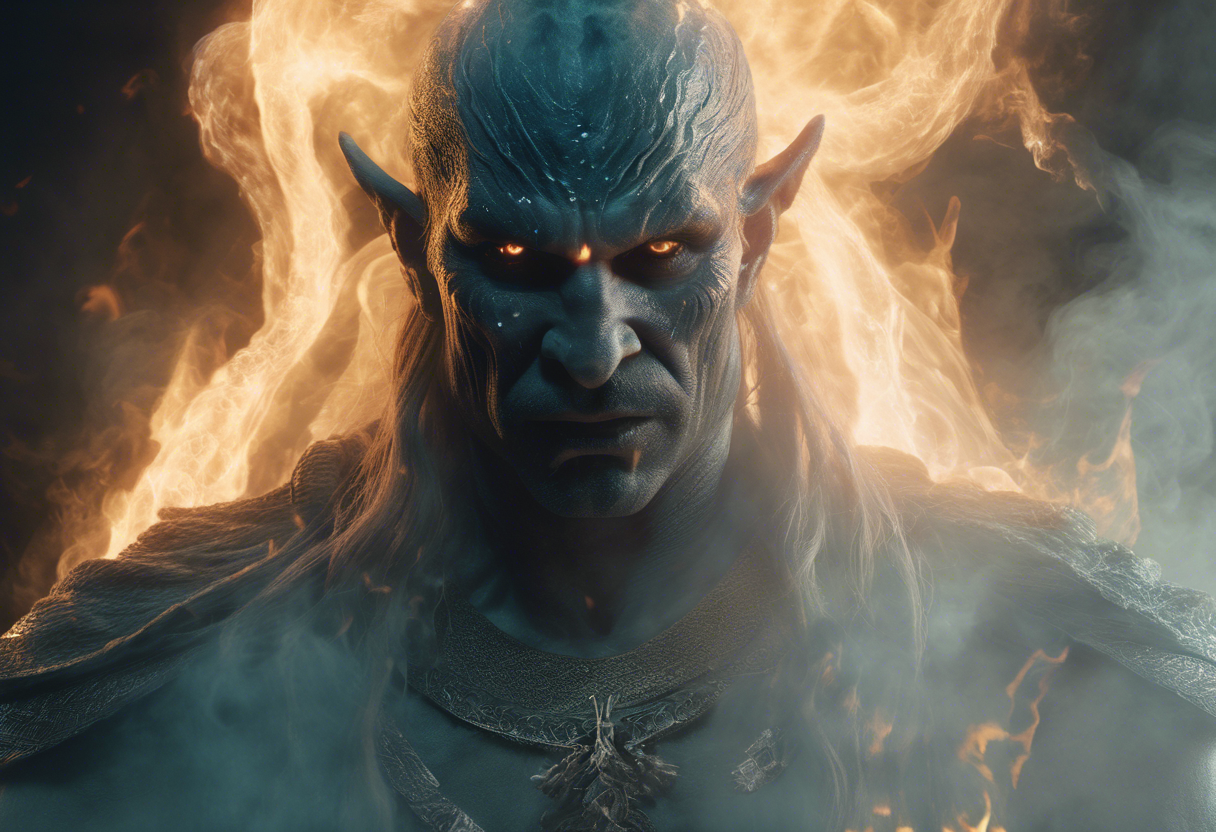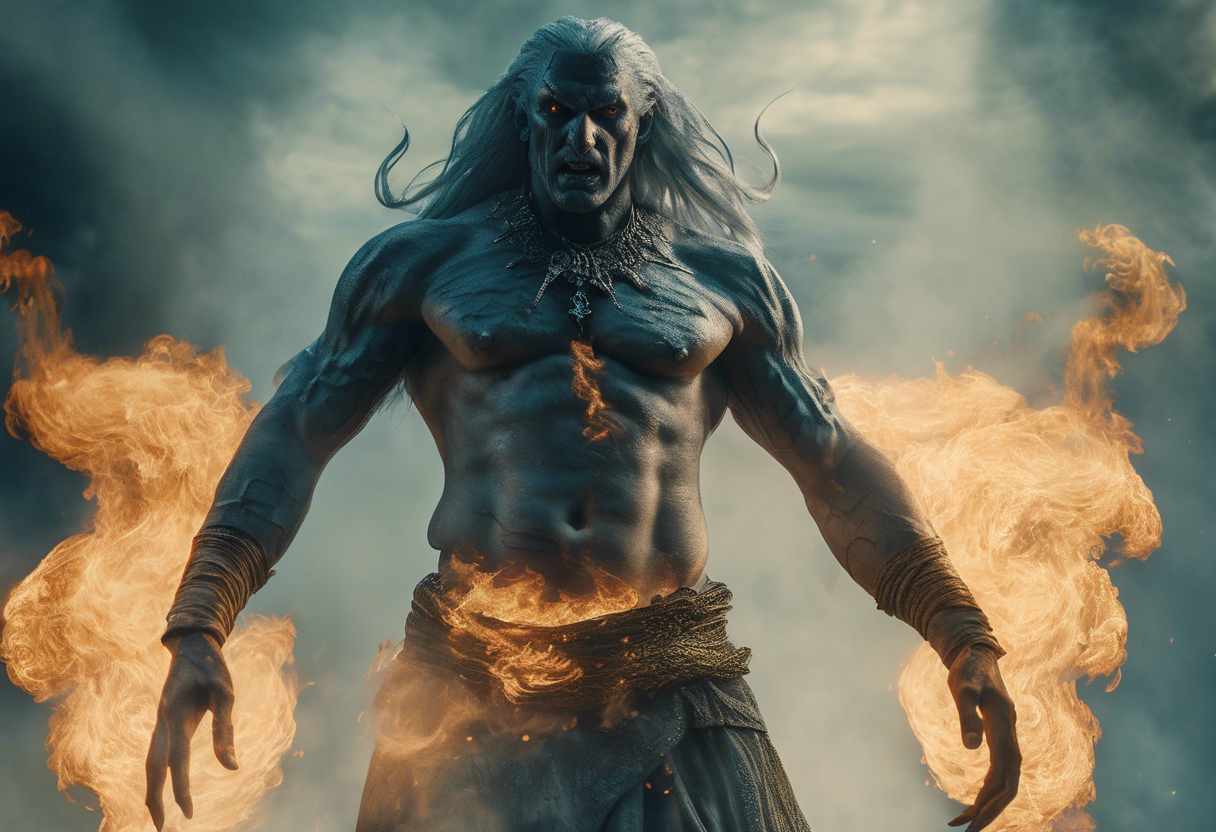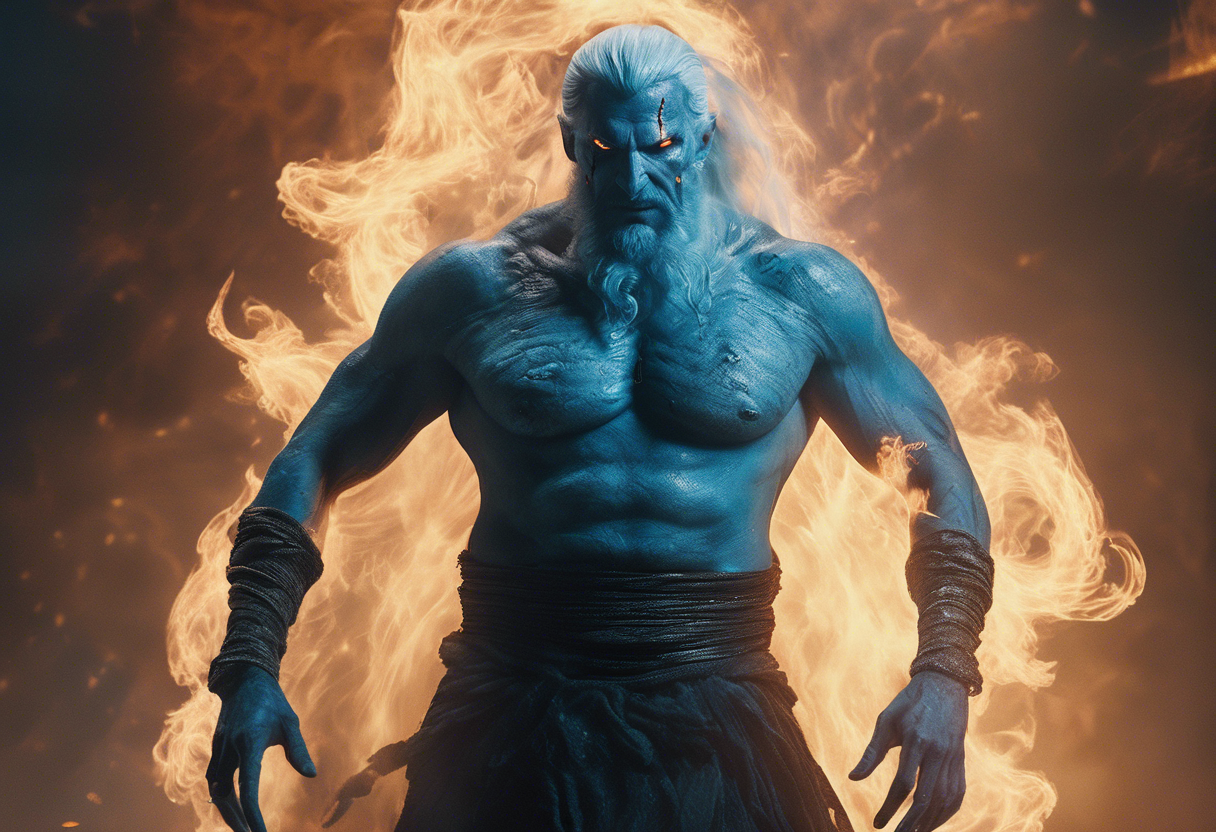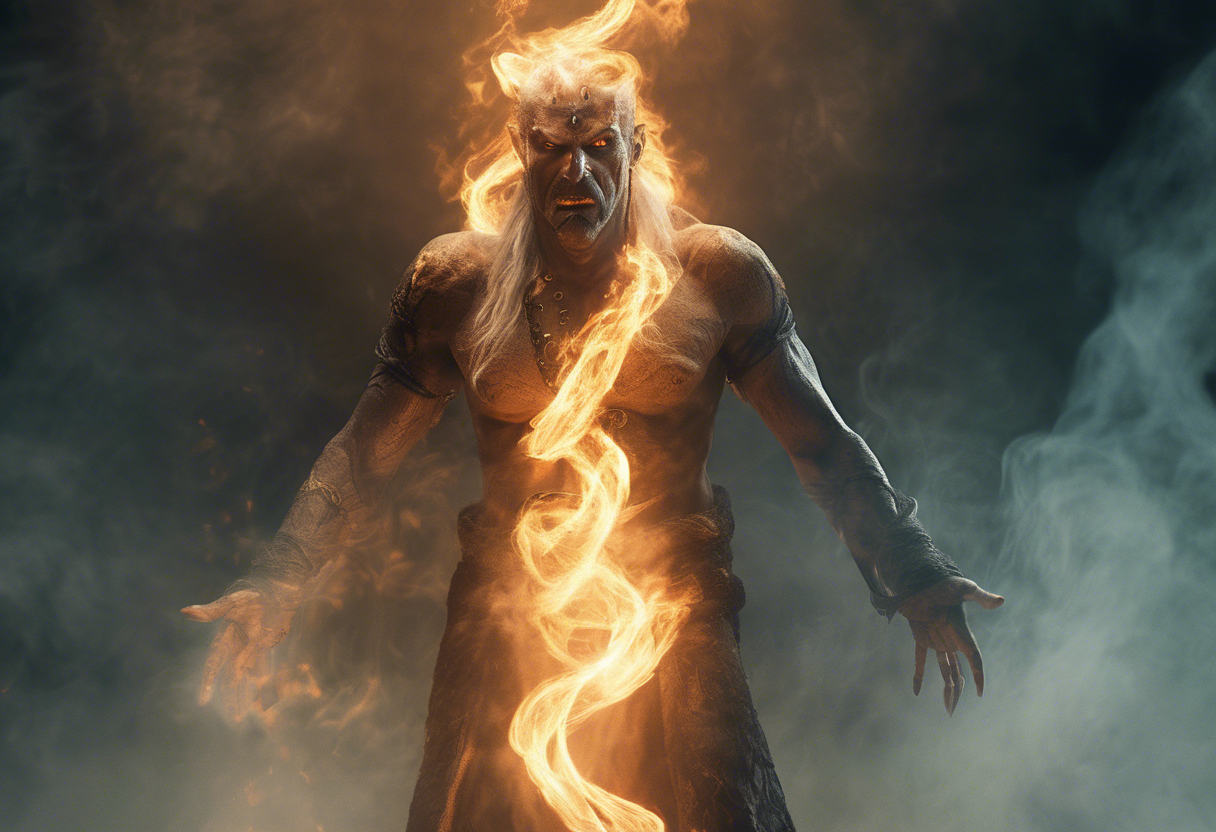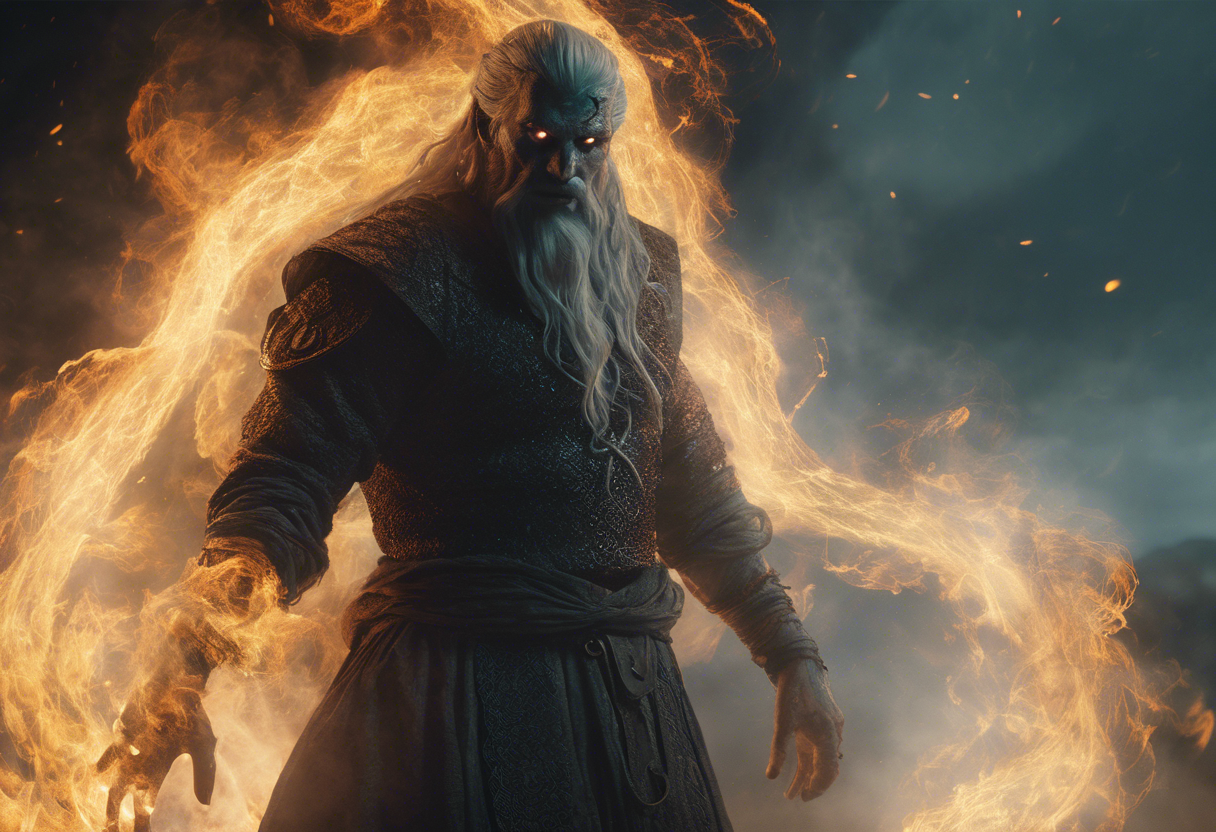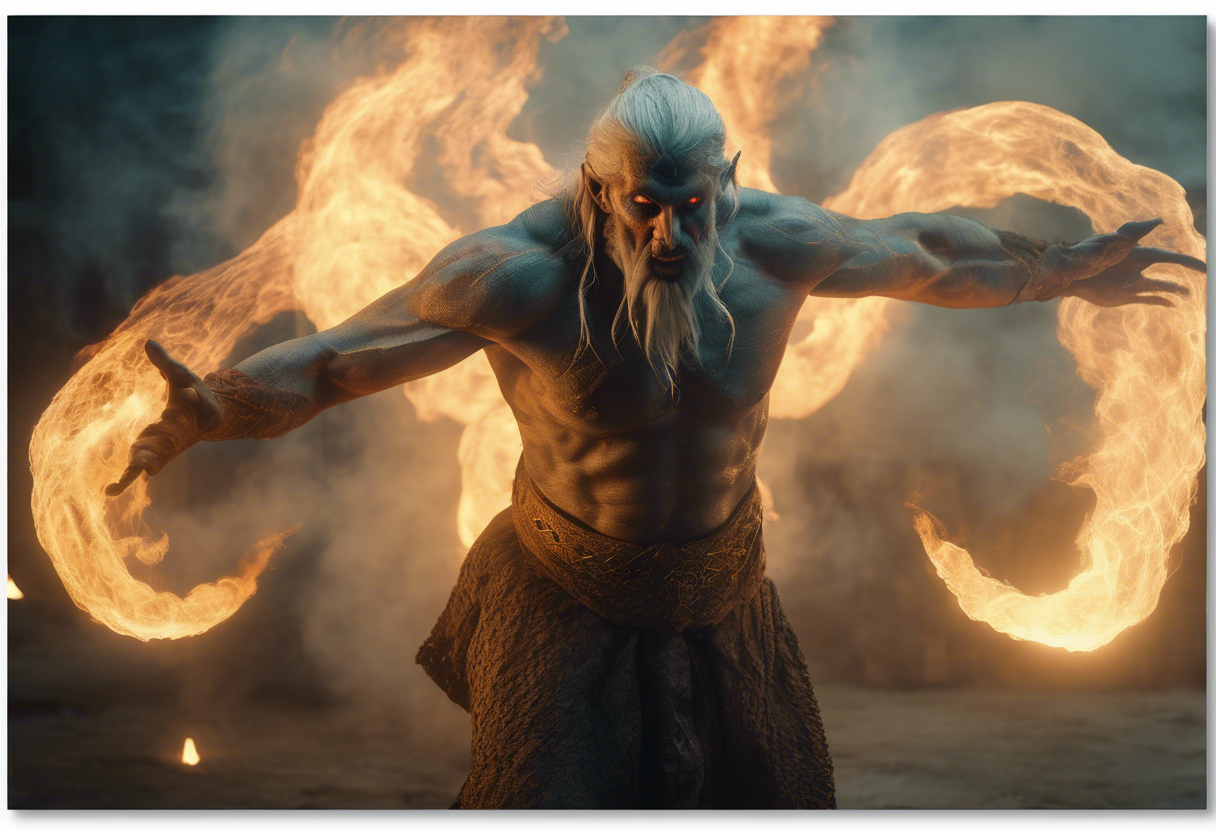Contents
The Djinn in Netflix’s The Witcher: A Comprehensive Analysis
Introduction
In the Netflix series adaptation of Andrzej Sapkowski’s "The Witcher," the Djinn is a powerful and enigmatic character drawn from ancient mythological traditions. Originating from Middle Eastern folklore, djinns are supernatural beings with the ability to grant wishes, often in a manner that is both mysterious and treacherous. In the context of "The Witcher," the Djinn appears in the first season, playing a pivotal role in the narrative and character development.
The Djinn’s backstory in the series is not extensively detailed, but their defining traits are clear: they are powerful air spirits with a consciousness and a character that is typically malevolent [5]. This aligns with the broader literary and mythological traditions where djinns are known for their ability to manipulate the element of air and grant wishes, albeit often with unintended and harmful consequences.
Role in the Series
The Djinn’s storyline in "The Witcher" series is intertwined with the characters of Geralt of Rivia and Yennefer. In the episode "Bottled Djinn" (Season 1, Episode 5), the Djinn is encountered by Geralt and Yennefer, who are on a mission to understand and contain its power. The Djinn is bound to a flask and can only be released by its master, who must make three wishes.
However, the complexity arises when Jaskier, unaware that he is not the Djinn’s master, makes two wishes out loud, which the Djinn grants in a twisted manner [2]. Geralt realizes that the Djinn will kill Yennefer if it is not stopped, leading him to use his third and final wish to save her, though the specifics of the wish are not revealed [1].
The Djinn’s presence sparks significant conflicts and decisions within the narrative. Geralt’s decision to save Yennefer highlights his deep affection and protective instincts towards her, while the Djinn’s actions underscore the dangers of meddling with powerful magical entities.
Character Analysis
The Djinn, as a character, embodies several key traits that make it compelling and relatable, albeit in a more abstract sense. Here are some of the primary aspects of its character:
- Personality: The Djinn is depicted as a malevolent entity that grants wishes in a way that is often harmful or twisted. This aligns with the mythological depiction of djinns as beings that are not necessarily evil but certainly not benevolent [5].
- Motivations: The Djinn’s primary motivation is to fulfill its obligations to its master while maintaining its own autonomy and power. It does so by interpreting wishes in the most literal and often destructive manner possible.
- Strengths: The Djinn’s power is its most significant strength. It can manipulate air, summon powerful storms, and grant wishes that can alter reality [5].
- Flaws: The Djinn’s inability to understand the nuances of human wishes and its tendency to interpret them in the most harmful way possible are its major flaws.
- Development: While the Djinn itself does not undergo significant development, its interactions with other characters, particularly Geralt and Yennefer, reveal more about their own motivations and relationships.
Themes and Symbolism
The Djinn in "The Witcher" series embodies several themes and symbolic elements that contribute to the overarching message of the show:
- The Danger of Unchecked Power: The Djinn represents the dangers of wielding immense power without understanding its full implications. This theme is echoed in the broader narrative where characters like Yennefer and Geralt grapple with their own powers and the consequences of using them.
- The Complexity of Wishes: The Djinn’s twisted granting of wishes highlights the complexity and potential danger of getting what one wishes for. This theme is a cautionary tale about the importance of careful consideration and the unintended consequences of one’s desires.
- Loyalty and Sacrifice: Geralt’s decision to use his final wish to save Yennefer symbolizes the themes of loyalty and sacrifice that are central to the series.
Cultural Impact
The Djinn in "The Witcher" series has a significant cultural impact, particularly within the context of fantasy and mythological adaptations:
- Fan Reception: Fans of the series have been intrigued by the Djinn’s enigmatic presence and the moral dilemmas it presents. The character has sparked discussions about the nature of power and the consequences of one’s actions.
- Adaptations and Spin-offs: While the Djinn is not a central character in other adaptations or spin-offs, its appearance in the Netflix series has contributed to a broader understanding and appreciation of mythological beings in modern media.
- Influence on Popular Culture: The depiction of the Djinn in "The Witcher" series has influenced how such mythological characters are portrayed in other works. It underscores the importance of staying true to the original mythological roots while adapting these characters for modern audiences.
Critical Reception
The critical reception of the Djinn in "The Witcher" series has been mixed but generally positive:
- Praise: Critics have praised the series for its faithful adaptation of the mythological aspects of the Djinn, as well as the moral complexity it brings to the narrative.
- Controversies: Some viewers have found the Djinn’s storyline confusing or less engaging compared to other plotlines. However, this criticism is minor compared to the overall positive reception.
- Interpretations: The Djinn’s role has been interpreted in various ways by audiences and critics. Some see it as a cautionary tale about power, while others view it as a symbol of the unpredictable nature of fate.
Legacy
The Djinn’s legacy in "The Witcher" series is significant, reflecting both the enduring appeal of mythological characters and the series’ ability to adapt these characters in compelling ways:
- Enduring Appeal: The Djinn remains a fascinating character due to its enigmatic nature and the moral dilemmas it presents. This appeal is likely to endure as the series continues to explore deeper themes and mythological elements.
- Relevance in Contemporary Discussions: The Djinn’s storyline contributes to contemporary discussions about power, responsibility, and the consequences of one’s actions. These themes are universally relevant and continue to resonate with audiences.
- Inspiration for Other Works: The depiction of the Djinn in "The Witcher" series is likely to inspire other works and character archetypes, particularly in the fantasy genre where mythological beings are a staple.

